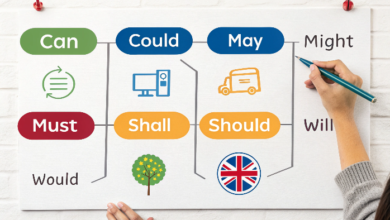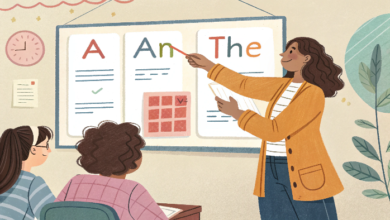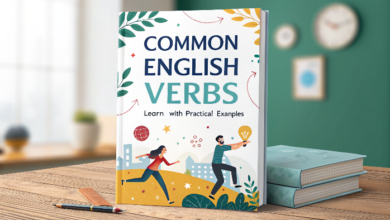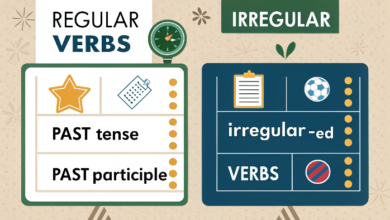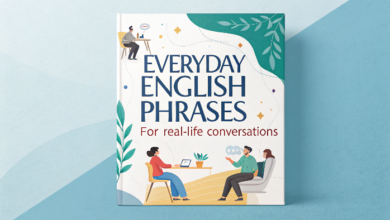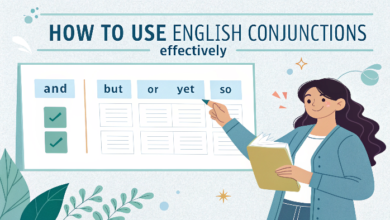How to Use Verbs in English: A Beginner’s Guide
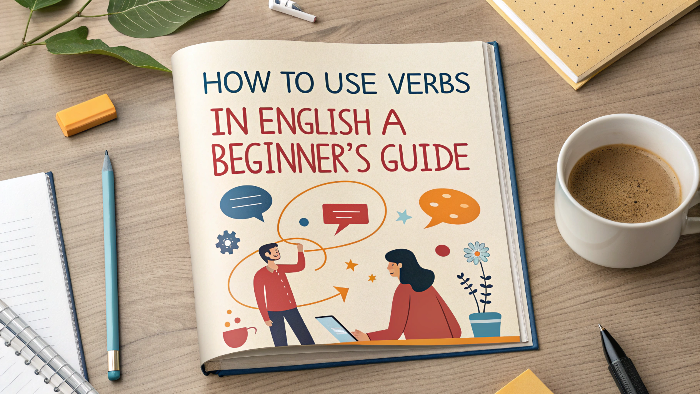
Common Phrasal Verbs in English
Phrasal verbs are combinations of verbs with prepositions or adverbs that create new meanings.
Examples:
Turn off (to deactivate): Please turn off the lights when you leave.
Give up (to quit): She gave up smoking last year.
Look after (to care for): He looks after his little brother.
Tip: Phrasal verbs are very common in everyday English, especially in spoken language. Try to learn them in context, as their meaning can often change depending on the situation.
Exercises to Practice English Verbs
Exercise 1: Fill in the Blank with the Correct Verb Form
Yesterday, I ______ (go) to the park.
She usually ______ (eat) lunch at noon.
We ______ (not/understand) the instructions.
By this time next year, they ______ (move) to a new city.
Exercise 2: Choose the Correct Verb
He __________ (has, have) a new car.
I __________ (enjoy, enjoys) playing tennis on weekends.
They __________ (went, gone) to the cinema last night.
We __________ (will visit, will visiting) Paris next summer.
Answer Key:
Exercise 1:
went
eats
don’t understand
will have moved
Exercise 2:
has
enjoy
went
will visit
Common Mistakes to Avoid with Verbs
Mistake 1: Confusing Regular and Irregular Verb Forms
Always make sure you use the correct form of the verb. For example, the past tense of go is went, not goed.
Mistake 2: Incorrect Use of Auxiliary Verbs
Be careful when using auxiliary verbs like do, have, and will. For example, in negative sentences, remember to add not after the auxiliary verb.
Correct: I do not like coffee.
Incorrect: I not like coffee.
Mistake 3: Overusing Passive Voice
While passive voice is useful, it’s better to use the active voice in most cases for clarity and simplicity.
Conclusion
Mastering verbs is crucial for speaking and writing in English correctly. By understanding the different types of verbs, practicing tenses, and learning phrasal verbs,
you can significantly improve your language skills. Remember to keep practicing, and don’t hesitate to revisit these concepts as you progress in your learning journey.
Start with simple sentences and gradually challenge yourself with more complex structures. With time and dedication, you will become more confident in using verbs in English.
See also:
Easy Grammar Quiz: Test Your English Skills
Boost your vocabulary skills with challenging quizzes

